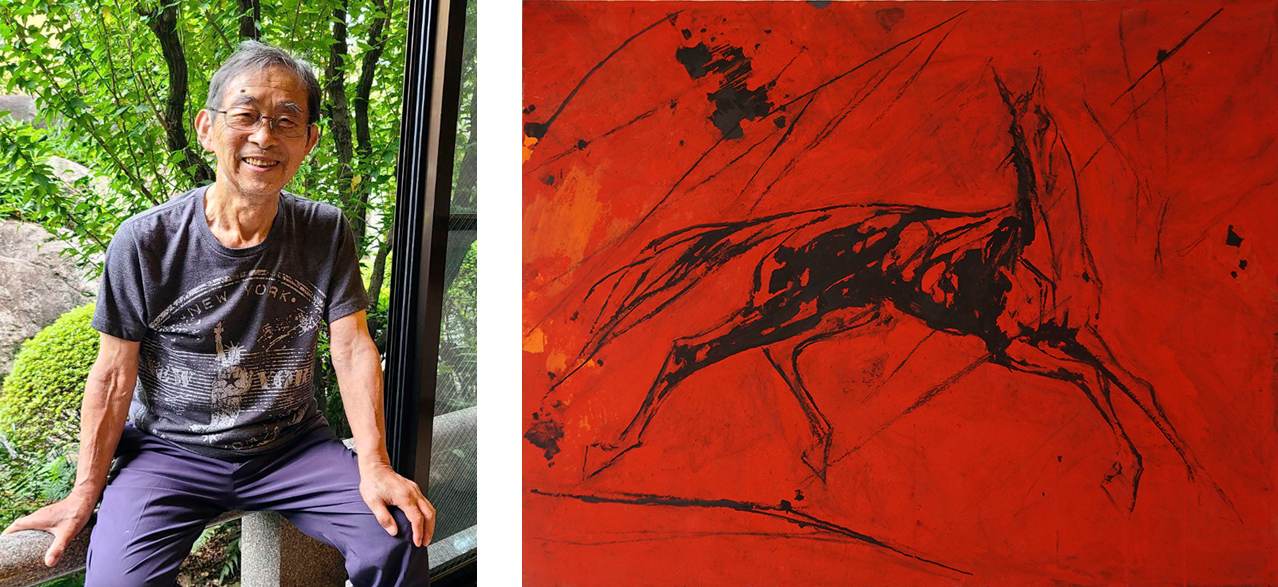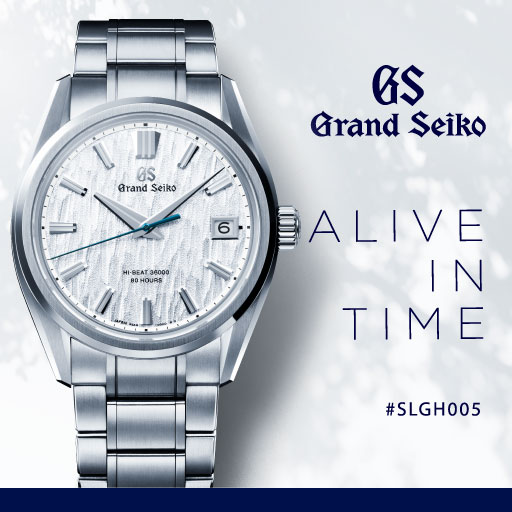EXHIBITION
SHICHIRO KOBAYASHI: DRAMA OF LIGHT AND SHADOW

Background drawing by Shichiro Kobayashi for TV anime Simoun, 2006, Watercolor, poster color, pen on paper, 9x14in., ©SOTSU, Studio DEEN/Simoun Production Committee
The Nippon Gallery, located on the 7th floor in the Nippon Club tower, will present SHICHIRO KOBAYASHI: DRAMA OF LIGHT AND SHADOW with paintings and anime background drawings commemorating Shichiro Kobayashi (1932-2022), a leading animation artist active since the early days of TV animation, who continued to work as a painter until his death on August 25, 2022, at the age of 89. Kobayashi has long dreamed of holding a solo exhibition in New York. We will introduce the world of Shichiro Kobayashi, who lived a life of animation history and had a significant influence on creators and animation enthusiasts in Japan and abroad, and who continued – upon closing his anime production in 2011 – to pursue his aesthetics of nature and unlimitedness through figurative and abstract paintings.
In 1964 at the very beginning of Japan’s animation history, Shichiro Kobayashi created background art for four chapters of the TV animation Space Patrol Hopper. Kobayashi recalls at the time, he was hired as an illustrator for animation by Toei Doga at the age of 31, “I thought my life would be heaven because I was able to make my living by doing what I love.”
Since then, he has painted, created, and directed art for numerous significant Japanese cartoons for 46 years until 2011. His achievements have had great worldwide recognition. In 2011, he received the prize of The Bunka-cho Film Award from the Agency for Cultural Affairs, Japan. In 2015 and 2017, he threw lectures at the Japan Expo in Paris. Later, The Louvre Lens Museum and Pollux Animation invited him to France to present his works, giving a lecture and workshop in 2016. The Agency for Cultural Affairs of Kuwait invited Kobayashi in 2018 to hold a lecture and workshop there as well.
The groundbreaking works he contributed to include: Star of the Giants (TV 1968-71), Moomins (TV 1969-70), Q the Spook, New (TV 1971-72), The Gutsy Frog (TV 1972-74), Panda Ko Panda (movie, 1973,), First Human Giatrus (TV 1974-76), Adventure of Gamba (TV 1975), The Genius Bakabon (TV 1975-77), Manga World Folk Tale(TV 1976-79), Treasure Land (TV 1978-79), Lupin the Third: Castle of Cagliostro (movie, 1979), Homeless Kids (movie 1980), Tomorrow’s Joe 2 (movie 1981), Cobra (movie 1982), Golgo 13 (movie, 1983), Urusei Yatsura 2 and 3 (movie 1984, 1985), Touch (TV 1985-87), Angel’s Egg(video, 1985), Lupin the Third: The Fuma Conspiracy (movie 1987), The Venus Wars (movie 1989), Fujiko F. Fujio Anime Special (TV 1989), Revolutionary Girl Utena (TV 1997, movie 1999), Berserk (TV 1997-98), Legend of Basara (TV 1998), To Heart (TV 1999), Pikachu Excavation (movie 1999, 2000), Pikachu Hide and Seek (movie 2001), Simoun (TV 2006), and Nodame Cantabile (TV 2007, 2008, 2010).
With the slogan “creating animation we have never seen,” Osamu Dezaki (1943-2011), an anime director, collaborated with Kobayashi to create art for the Adventure of Gamba (TV 1975) and Homeless Kids (movie 1980) and cultivated new expressions with free imagination and passion under the restrictions of TV animations. They created many experimental techniques with their style of omissions and emphasis, which became the foundation that opened up the possibilities of expression, and profoundly influenced the next generations. Film and director Mamoru Oshii (b.1951) says, “It was a cultural shock to learn how Kobayashi created his background drawings. I knew nothing about the layout until then. He creates the drawing based on the theory.” Tomomi Mochizuki (b.1958) describes, “Only with Kobayashi’s backgrounds does the animation world exist, filling up with ‘air’ in the screen…. The way he creates light and shadow is completely original, and it is his signature style. His techniques are excellent, and once we make a video out of his drawings, it will create space, even when he did not paint fully on the paper.” [1]

Photo Left: Shichiro Kobayashi, 2021 Photo Right: Untitled, 2021, Oil on canvas, 37.4 x 46 in.
After the closure of Kobayashi Productions in 2011, he continued to work energetically as a painter. He pursued his image in the world of figurative painting, which captures memories of the harsh and beautiful nature of the cold village where he was born and raised (Oketo-mura, Tokoro-gun, Hokkaido; now Oketo-cho) and the beauty of everyday life, and in the world of abstract painting, which explores the unusual and the originality with simple and extended expressions.
While digital animation production has become the mainstream, Kobayashi believed in the potential of “handiwork” and the unlimited power of human beings to create images from nothing and wished to carry on this tradition. “I want you to make raw images, not processed images,” he said. Processed images may be pleasing to the palate, but I don’t think they are genuinely delicious. I would like to see raw, handmade images flourish,” Kobayashi said to future generations of creators. We hope you will enjoy the power and technique of hand-drawn animation backgrounds and the unknown, unexpected, and surprising world of “freedom” that Kobayashi pursued throughout his life in his paintings.
The exhibition is curated by Kyoko Sato, who is known for her work in introducing Japanese culture to the New York audience.
[1] Works of Shichiro Kobayashi: Painting Air, Edited by Studio Ghibli 2002, Tokuma Shoten.
Hosted by The Nippon Club
Organized by Atelier Koba | Yasuko Kobayashi, J’SHA ltd.
Produced by Akemi Ozawa (ACTIVISION)
Curated by Kyoko Sato, Sayaka Kawazoe and Akemi Ozawa
In cooperation with Anime NYC, General Incorporated Association Manga Art, General Incorporated Association Dreamers

The exhibition is made possible by Mr. Eluasti Maroin.
Additional support is provided by Koshin Rentals, Inc.
Special thanks to Adam Sheehan, Karen Ono, Carley Townsend, Cleek Schrey, Hayato Tamura, Hiromi Suzuki, Hiroshi Kurihara, Kaoru Satoh, Masaaki Maeda, Nobuhiko Kurosu, Peter Tatara, Richard Ford III, Shusuke Tamura, Takashi Sakuda, Tatsuki Jinkawa, Toshiko Hagihara, Yasuko Honda, Yukako Obara, and Yusuke Wakata. *Alphabetical order
| Period | November 16 - 22, 2022 (Closed on November 20) |
|---|---|
| Hours | 10:00 am - 6:00 pm (Mon-Fri) 10:00 am – 5:00 pm (Sat) Closed on Sun |
| Location | The Nippon Gallery 145 W 57th St, 7th Fl, New York, NY 10019 |
| Admission | Free admission |
| Detail |





